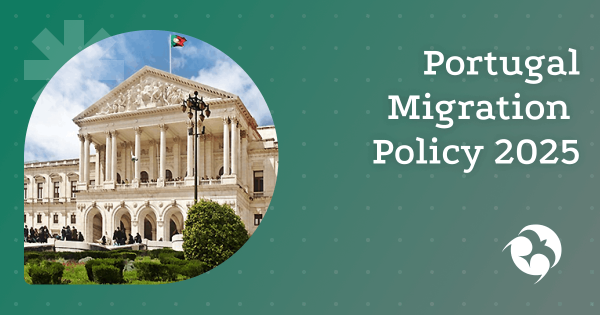Yesterday, something happened that had been talked about for six months. The growing number of migrants and the support of the far-right Chega party have pushed Portugal towards strict changes. On June 23, the Council of Ministers approved fundamental changes in migration legislation. Now the document is being sent to parliament, where it is likely to be supported – the ruling coalition has the tacit support of the far-right Chega.
What exactly is changing?
Obtaining citizenship through naturalization:
- The length of stay increases from 5 to 10 years for most countries.
- For citizens of CPLP (Portuguese–speaking countries) – 7 years instead of the previous 5.
- A compulsory language, cultural and democratic proficiency test is being introduced.
- The signing of a declaration of commitment to democratic principles is required.
- Criminal checks are being tightened, and any prison sentences are now excluded.
Child citizenship:
- The children of foreigners no longer receive Portuguese citizenship automatically.
- Parents must have lived in the country for at least 3 years and submit a special application.
What’s next?
- The parliamentary vote is in the coming weeks.
- The possible launch of the new rules is autumn 2025.
Political background
The situation is developing against the background of a right turn after the May elections. The far-right Chega has increased its representation in parliament from 12 to 50 deputies. The ruling Democratic Alliance is ruled by a minority and needs the support of either the Chega or the Socialists.
In May, the government already began expelling up to 18,000 illegal migrants, and the first group of 4,500 received 20-day deportation notices.
Statistics show the scale of the migration boom. Between 2015 and 2023, the number of foreigners in Portugal increased by 171%. In 2023, 141.3 thousand people received citizenship, which is 20% less than in 2022. There are more than 400,000 applications in the queue for consideration.
Experts note the economic importance of migrants. In 2023, they brought over 1.6 billion euros in taxes and 257 million euros in social contributions to the budget. Some sectors of the economy would simply collapse without foreign labor.
Law on extension published
The Portuguese authorities have published Decree-Law No. 85-B/2025, which will put an end to the cycle of endless extensions of residence permits. The document entered into force on July 1 and concerns the last automatic extension for foreign citizens.
Residence permits that expired between February 22, 2020 and June 30, 2025 are automatically extended until October 15, 2025. After this date, the work system will change dramatically. From October 16, the documents will be valid only if there is a certificate of payment for the extension application issued by AIMA. The validity period of such a certificate is 180 days from the date of issue.
AIMA develops new platforms based on information system compatibility. The ambitious goal is to finally end unreliable regularization through successive changes. Key innovations:
- Two parallel online services for different categories of documents.
- The notification process has been running since July 1 in the order of priority.
- The new visa extension planning feature is already working.
AIMA President Pedro Portugalo Gaspar previously reported that of the 446,000 pending trials, 170,000 were closed due to a lack of response from applicants. Only 35 applications were rejected.

- We will answer all your questions
- We will help you choose the best option
- We will guide you through every step or do everything for you
Changes in migration legislation require a professional analysis of each specific situation. Our migration lawyers will help you assess the prospects for obtaining status in the new conditions and develop an optimal strategy. Leave a request for a consultation, we will analyze exactly your case.












